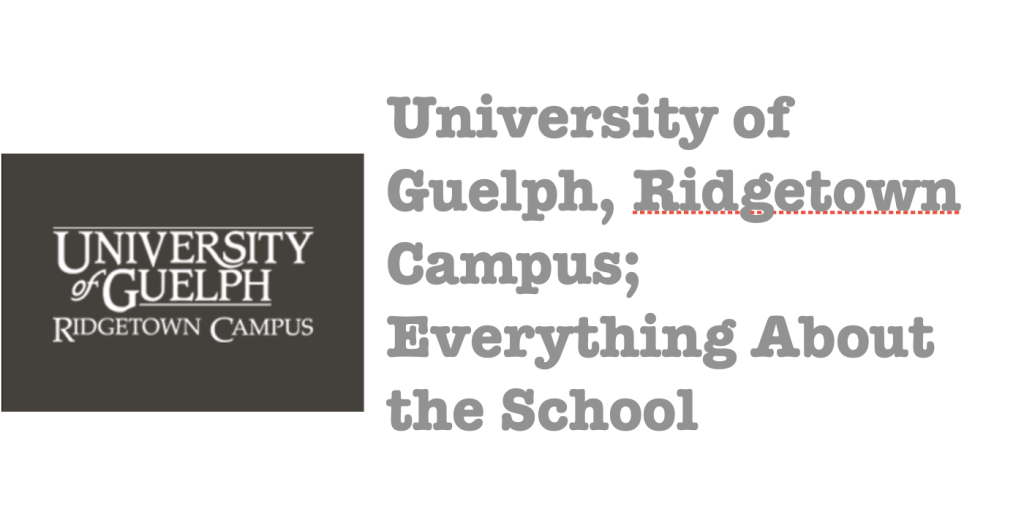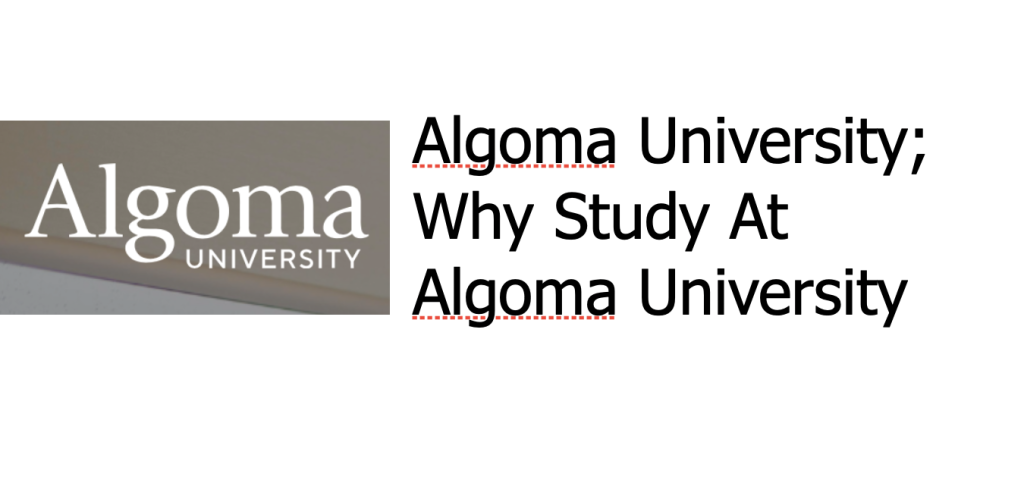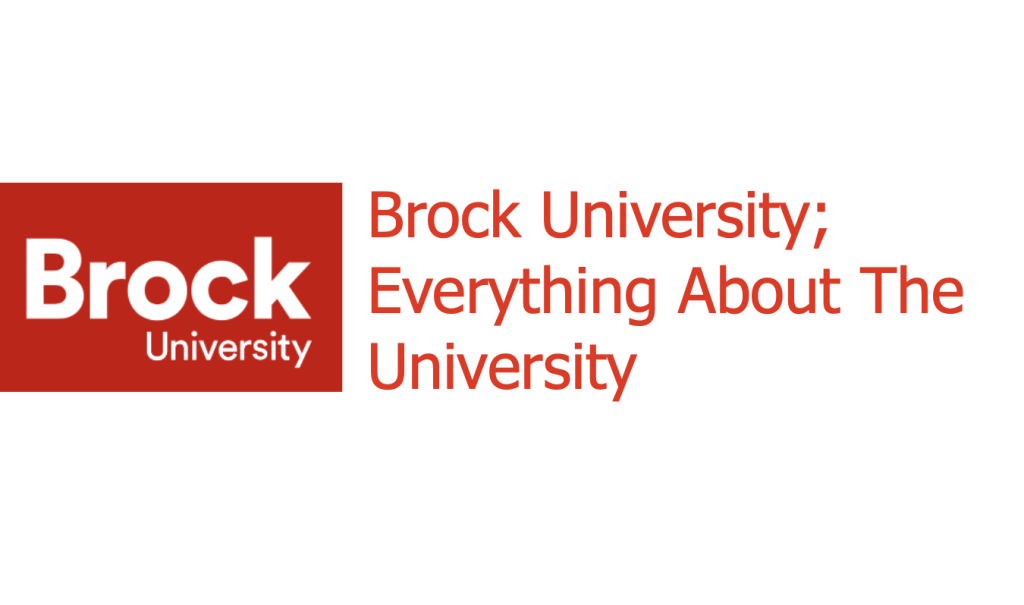Toronto Metropolitan University acceptance rate — Applying to university can be a daunting task for many prospective students. One of the crucial factors that applicants often consider is the acceptance rate of the institution they are interested in.
In this article, we delve into Toronto Metropolitan University acceptance rate (TMU acceptance rate), exploring its significance, trends, and factors that influence it. By understanding the acceptance rate, students can better assess their chances of admission and make informed decisions about their academic future.
Table of Contents
Understanding Acceptance Rate
The acceptance rate is the percentage of applicants who are granted admission to a university. It is a vital metric used by both applicants and university administrators to gauge the competitiveness of the institution’s admissions process. A lower acceptance rate indicates higher selectivity, as a smaller proportion of applicants are offered admission. Conversely, a higher acceptance rate suggests a more open and inclusive admissions policy.
Read Also: Top 10 Reasons Why Choose Ontario Universities
Overview of Toronto Metropolitan University
Toronto Metropolitan University, commonly known as TMU, is one of Canada’s prominent universities, located in the heart of Toronto, Ontario. Established in 1967, TMU resulted from the amalgamation of several existing colleges and institutes. As a major urban university, TMU attracts a substantial number of applicants each year, contributing to the significance of its acceptance rate.
The university’s main campus is situated in downtown Toronto, providing students with access to a dynamic and diverse city, rich in culture, business, and innovation. TMU offers a wide range of undergraduate and graduate programs across various fields of study, including arts, sciences, business, health, and engineering.
Read Also: Toronto Metropolitan University and Everything About the University
Historical Trends in TMU Acceptance Rate
Over the years, TMU acceptance rate may have experienced fluctuations due to various factors such as changes in application numbers, admission policies, and program offerings. By examining historical data, we can gain insights into how TMU’s selectivity has evolved and how it may continue to evolve in the future.
Historical acceptance rate data can also shed light on the university’s growth and reputation. In its early years, TMU may have had a higher acceptance rate as it sought to attract a larger pool of students and establish itself as a reputable institution. As it gained recognition and popularity over time, the acceptance rate might have gradually decreased due to increased demand and more competitive applicant pools.
Moreover, external factors, such as economic conditions, demographic shifts, and global events, can also influence TMU acceptance rate. Economic downturns may lead to an increase in applications as individuals seek to pursue higher education during periods of limited job opportunities. Similarly, global events, such as the COVID-19 pandemic, can impact application numbers and admissions policies, leading to variations in the acceptance rate.
Factors Influencing Toronto Metropolitan University Acceptance Rate (TMU acceptance rate)
Several factors contribute to Toronto Metropolitan University acceptance rate (TMU acceptance rate), and understanding these factors is essential for prospective applicants:
a. Application Volume
The number of applications received by TMU plays a significant role in determining the acceptance rate. A higher volume of applications could lead to a more competitive admissions process, resulting in a lower acceptance rate. Conversely, a decrease in application numbers might lead to a higher acceptance rate as the university seeks to fill available spots.
b. Program Popularity
The popularity of certain programs can influence the acceptance rate for those specific programs. Highly sought-after programs may have a lower acceptance rate due to high demand and limited capacity, while less competitive programs may have a higher acceptance rate.
c. Admission Criteria
TMU’s admission criteria, such as academic requirements, standardized test scores, and extracurricular activities, play a significant role in shaping the acceptance rate. Higher admission standards might result in a lower acceptance rate, as the university seeks to admit students who demonstrate strong academic potential and a commitment to their chosen fields of study.
d. Institutional Goals
TMU’s overall goals and priorities also impact the acceptance rate. For instance, the university may prioritize increasing diversity and representation among its student body. As a result, it may implement admissions policies and outreach initiatives aimed at attracting a diverse pool of applicants, potentially influencing the acceptance rate.
e. Demographic Trends
Demographic shifts in the region or country can influence application numbers and, consequently, the acceptance rate. Changes in the number of high school graduates, population growth, or immigration patterns may affect the pool of applicants seeking admission to TMU.
Understanding Selectivity
Acceptance rate alone does not provide a complete picture of a university’s selectivity. Other factors, such as yield rate (the percentage of admitted students who enroll), also impact the university’s overall selectivity. A university may have a low acceptance rate but a high yield rate, indicating that they are successful in attracting and retaining admitted students.
A high yield rate can reflect the university’s strong appeal, academic reputation, and campus culture, as admitted students choose to enroll and become part of the TMU community. On the other hand, a low yield rate may suggest that admitted students opt to attend other institutions for various reasons, such as better financial aid offers, specific academic programs, or personal preferences.
Universities strive to strike a balance between selectivity and yield rate. While maintaining a competitive acceptance rate can enhance the university’s reputation, ensuring a high yield rate is equally critical to achieving enrollment goals and creating a vibrant and engaged student community.
Admissions Process at TMU
Understanding the admissions process at TMU is crucial for applicants. TMU follows a holistic approach to admissions, considering various factors to assess an applicant’s potential for academic success and contribution to the university community.
Read Also: How to Apply Toronto Metropolitan University
a. Application and Supporting Documents
Prospective students must complete an application form and provide relevant supporting documents, including academic transcripts, standardized test scores (e.g., SAT, ACT), letters of recommendation, and sometimes, a personal statement or essay. These documents offer insights into an applicant’s academic achievements, extracurricular activities, leadership experiences, and personal interests.
b. Academic Performance
Academic performance is a fundamental criterion in TMU’s admissions process. The university typically looks for students who have demonstrated a strong academic record in high school or previous academic pursuits. Grades in core subjects, such as English, mathematics, science, and social studies, carry significant weight in the evaluation process.
c. Standardized Test Scores
While TMU takes a holistic approach to admissions, standardized test scores, such as the SAT or ACT, may be considered as part of the application review process. However, the significance of standardized test scores in the admissions process has evolved over the years. Many universities, including TMU, have adopted test-optional policies, allowing applicants to choose whether to submit test scores or not. This shift acknowledges that standardized tests may not fully represent an applicant’s academic potential and achievement.
d. Extracurricular Involvement
TMU values applicants who have demonstrated involvement in extracurricular activities, such as leadership roles in student organizations, community service, sports, arts, or other pursuits. Extracurricular involvement showcases an applicant’s interests, passions, and commitment to personal growth beyond academics.
e. Personal Statement or Essay
Many undergraduate programs at TMU require applicants to submit a personal statement or essay. This allows applicants to express their motivations, goals, and unique experiences, providing insight into their character and potential contributions to the university community. A well-crafted personal statement can set applicants apart and make a positive impression on the admissions committee.
f. Letters of Recommendation
Letters of recommendation from teachers, mentors, or employers provide additional perspectives on an applicant’s academic abilities, character, and potential. These letters can support an applicant’s candidacy by highlighting their strengths, achievements, and potential for success at TMU.
Tips for Prospective Applicants
Prospective applicants to TMU should consider the following tips to enhance their chances of admission:
a. Research Programs: Understand TMU’s various academic programs and select the ones that align with your interests and goals. Consider the curriculum, faculty expertise, research opportunities, and potential career paths associated with each program.
b. Academic Excellence: Focus on maintaining strong academic performance throughout high school or previous academic pursuits. Strive to challenge yourself with rigorous coursework and seek academic support when needed.
c. Extracurricular Involvement: Participate in extracurricular activities that demonstrate leadership, passion, and commitment. Engaging in activities that align with your interests can help you stand out as a well-rounded and dynamic applicant.
d. Personal Statement: Craft a compelling personal statement that showcases your unique experiences, interests, and aspirations. Use this opportunity to demonstrate your motivation for pursuing higher education at TMU and articulate your academic and personal goals.
e. Recommendation Letters: Seek recommendation letters from teachers, mentors, or employers who can provide insight into your character, achievements, and potential. Choose individuals who know you well and can speak to your academic abilities and personal qualities.
f. Visit Campus and Attend Events: If possible, consider visiting TMU’s campus to get a sense of the university’s atmosphere, resources, and campus culture. Attending campus tours, information sessions, and admissions events can provide valuable insights into life at TMU and demonstrate your interest in the university.
8. The Impact of COVID-19 on Admissions
The COVID-19 pandemic has had a significant impact on university admissions worldwide, including at TMU. The pandemic led to changes in standardized testing policies, travel restrictions, and the transition to remote learning. These changes may have affected the admissions process, application volume, and decision-making for both applicants and universities.
In response to the challenges posed by the pandemic, TMU, like many other institutions, demonstrated flexibility and adaptability in its admissions process. The university recognized the unique circumstances faced by applicants and adapted its policies to accommodate students in their pursuit of higher education.
Prospective applicants are encouraged to stay informed about any updates or changes in TMU’s admissions policies and requirements resulting from the pandemic. Admissions offices typically communicate such updates through their websites and official communications.
9. Balancing Selectivity and Access
One of the ongoing challenges for TMU, as with many universities, is striking a balance between selectivity and access. TMU seeks to maintain a competitive acceptance rate that reflects the university’s academic excellence, reputation, and goals. However, it is equally important for TMU to ensure access and inclusivity for a diverse group of students.
a. Holistic Admissions Process
TMU’s holistic admissions process helps achieve this balance. By considering an applicant’s academic achievements, extracurricular involvement, personal statement, and letters of recommendation, the university evaluates candidates beyond just test scores and grades. This approach allows TMU to identify talented students who may not fit the conventional mold but have the potential to thrive academically and contribute significantly to the university community.
b. Outreach and Support
TMU also engages in outreach and support programs aimed at encouraging underrepresented or underserved communities to consider higher education. Such programs may include partnerships with high schools, scholarship initiatives, mentorship opportunities, and admissions workshops. These efforts help bridge educational disparities and create a more inclusive campus environment.
c. Financial Aid and Scholarships
Financial considerations are significant factors in a student’s decision to attend a university. TMU offers various financial aid and scholarship options to eligible students, helping make higher education more accessible. By easing the financial burden of attending university, TMU seeks to attract and retain a diverse and talented student body.
10. Conclusion
The Toronto Metropolitan University acceptance rate (TMU acceptance rate) serves as a valuable metric for prospective applicants. Understanding the significance of this rate, along with the factors that influence it, allows students to make informed decisions and navigate the admissions process with confidence.
TMU’s commitment to academic excellence, research, and inclusivity makes it a sought-after institution, attracting talented students from across the globe. By embracing a holistic approach to admissions and supporting students in their pursuit of higher education, TMU continues to shape future leaders and contribute to the advancement of knowledge and society.
As applicants consider TMU as a potential educational home, they should approach the admissions process thoughtfully and strategically. Researching academic programs, preparing strong application materials, and demonstrating a genuine interest in TMU can enhance their chances of admission. Moreover, prospective students should remember that the acceptance rate is just one aspect of the university experience, and other factors, such as campus culture, resources, and opportunities for personal and academic growth, should also inform their decision.
Ultimately, the journey to higher education is one of self-discovery and growth. Each applicant brings a unique set of experiences, passions, and aspirations to the admissions process. By taking advantage of the opportunities presented during this process, students can find the institution that aligns best with their goals, values, and vision for the future. As students embark on this transformative journey, TMU remains committed to supporting and nurturing their academic and personal growth, creating a community of diverse, talented, and engaged individuals who will shape the world’s future.
Toronto Metropolitan University Acceptance rate, TMU acceptance rate by Schools in Ontario



